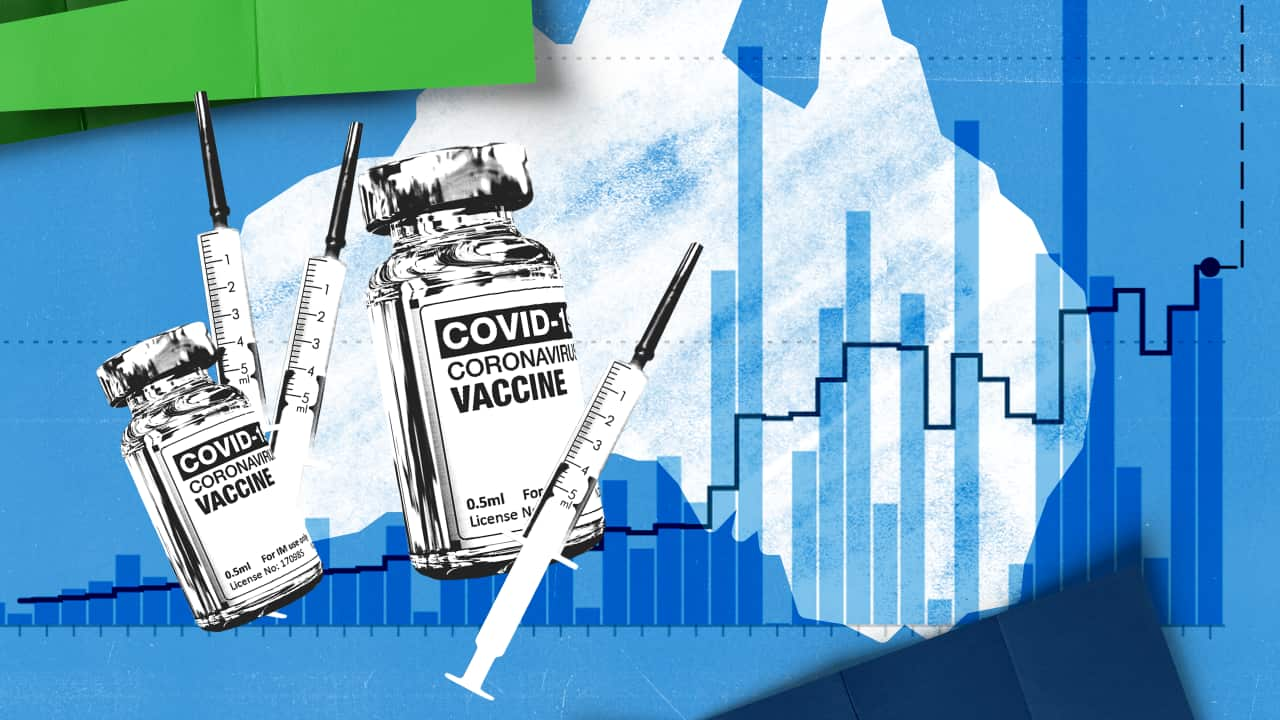Frontline disability support workers have aired their exasperation at the slow coronavirus vaccine rollout in a letter to federal government ministers, detailing their “whole life being taken over” by the pandemic.
The chief executive of a NSW disability support provider has also lamented the lack of information provided to the sector, telling SBS News phase 1A “hasn’t really started in disability” despite being more than two months into the rollout.
Figures released during a Senate inquiry on Tuesday revealed only 93 of Australia’s more than 6,000 disability residential facilities had received their first dose of COVID-19 vaccine, despite staff and residents being included in the first phase of the rollout.
Federal health department officials also revealed vaccinations for disability support workers had been delayed while the government prioritised inoculating aged care residents and staff.
“When we discovered aged care was more difficult, we did focus on aged care,” the department’s associate secretary, Caroline Edwards, told the inquiry.
“Not because people with a disability are any less of a priority, but the experience of COVID-19 has been that the absolutely greatest risk are elderly people in aged care.”
Julia Squire, chief executive of Ability Options, wrote to federal Health Minister Greg Hunt and NDIS Minister Linda Reynolds on Wednesday, detailing the immense frustrations of their staff who have so far been unable to access vaccines.
In the letter, seen by SBS News, Joanna - a frontline disability support worker who didn’t wish to use her full name - described feeling forgotten by the rollout as her “whole life has been taken over” by COVID-19.
Joanna, who works in an NSW residential group home, told SBS News she felt “pure anxiety” before her shifts due to fears she could unknowingly pass the virus on to her colleagues or the vulnerable people she works with.
“I know that all the people I care for would not survive COVID-19 because it’s difficult enough for them to access medical treatment. And the thought of doing that would absolutely break me,” she said. “I don’t know what I would do.”
Joanna said she had repeatedly sought information about how she could get vaccinated under phase 1A “through every angle” she could find but has been repeatedly rebuffed by vaccine clinics and GPs.
“It feels like we’ve been let down,” she said. “We were valued last year, [but] it feels like we’re not valued anymore.”
Ms Squire said only three employees and 10 NDIS participants have been able to access the Pfizer vaccine allocated to phase 1A, of the more than 500 staff members and 200 participants currently eligible for the jab.
A “small handful” of staff had been forced to go around the system and independently source AstraZeneca vaccines, she added.
Under the government’s original plan, more than 500,000 disability and aged care residents and staff were to be vaccinated in the first six weeks of the rollout.
Many of the organisation's participants who lived in group disability accommodation are also aging, Ms Squire's letter read.
“I honestly feel that I’m letting down our participants, their families and our support workers because I can’t answer the questions about why it is they are not seen as a priority in the reality of this rollout,” she told SBS News.
She said the sector had not been informed that disability support workers had dropped down the priority list, leaving desperate staff in “no man's land”.
“They [disability support workers] want to know that what’s been promised is going to happen and they remain a priority in the eyes of those who are organising the provision of the vaccine,” she said.
National Disability Services chief David Moody said the sector was “very frustrated” by the delay, citing research that shows people with disability often suffer severe complications from COVID-19.
He has called for more updated information about the rollout to be provided to disability facility workers and residents as a matter of priority, while Labor’s spokesperson for the NDIS Bill Shorten has described the delay as “unforgivable”.
The federal health department has been contacted for comment.
Only about 6.5 per cent of people with disability living in residential facilities have so far received the vaccine, according to health department figures.
The department has flagged they expect to complete residential aged care vaccinations in the coming weeks.
Prime Minister Scott Morrison on Thursday announced a “recalibrated” vaccine rollout, which would expand to include people over 50 from 3 May in GP respiratory clinics and GP clinics generally from 17 May.
The changes to the rollout plan will see AstraZeneca supplies diverted to the new demographic, leaving open the Pfizer vaccine to be used by Australians under 50.













